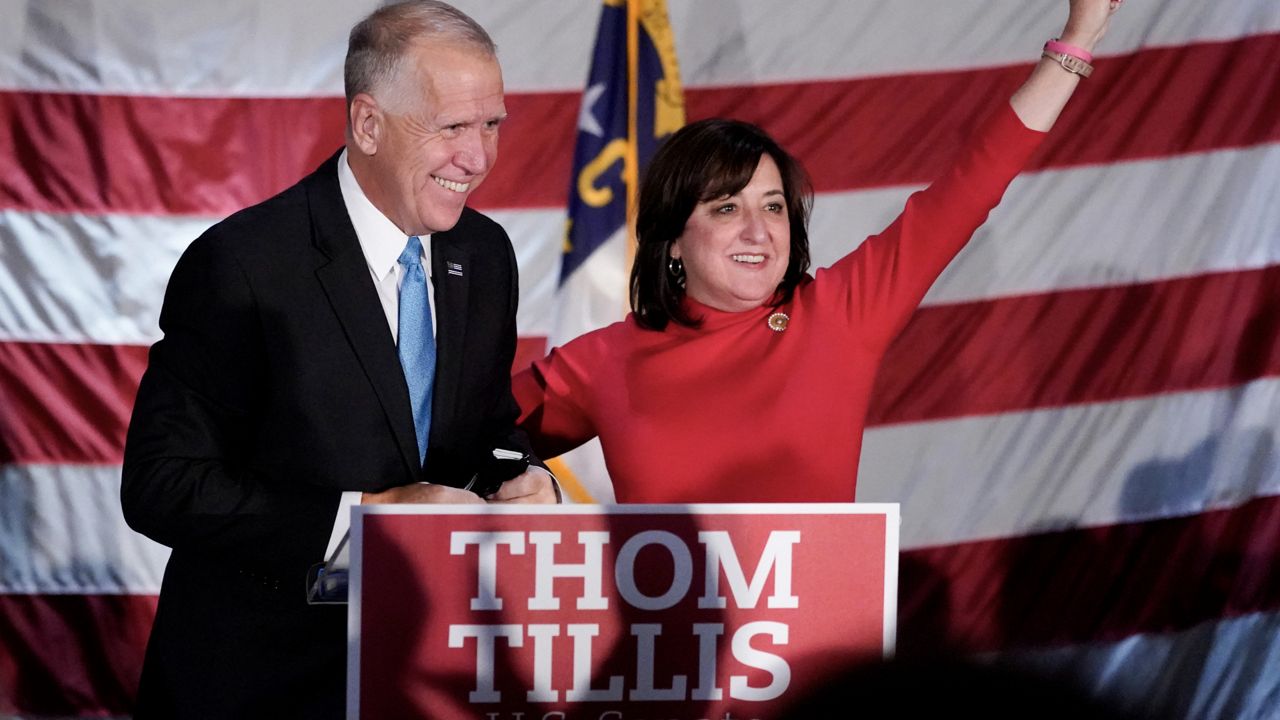It’s been almost a week since Election Day and the races for president and Senate in North Carolina still haven’t been called.
There are still as many as 160,000 absentee and provisional ballots out there that have not yet been counted, according to the State Board of Elections. County boards of elections are meeting this week to finalize their counts, with most planning to meet Thursday.
In the biggest races, President Donald Trump and Republican Sen. Thom Tillis both have healthy margins and look likely to win in North Carolina.
“We are nearing the finish line,” State Board of Elections Executive Director Karen Brinson Bell said in a news release Monday.
“We ask that the public please be patient as county boards of elections, as required, continue to count all eligible ballots that arrive by mail, conduct thorough post-election audits and certify their results,” she said
The state’s 15 Electoral College votes won’t make a difference for Trump, but reelection for Thom Tillis will make it more likely that Republicans can hold onto control in the Senate, depending on how things play out in two runoff elections in Georgia planned for early January.
A couple statewide races, including attorney general and chief justice of the North Carolina Supreme Court, are much closer and it will come down to counting those final outstanding absentee and provisional ballots.
In the chief justice race, Republican Paul Newby leads Democrat Cheri Beasley by about 2,600 votes. That’s an incredibly slim margin in a race that had more than 5.3 million ballots cast and could lead to a recount.
In statewide races in North Carolina, a candidate can request a recount when the margin is less than 10,000 or half a percent, whichever is less.
The race for state attorney general is outside of the recount margin for a recount as of Monday, with incumbent Democrat Josh Stein leading by almost 12,000 votes over Republican Jim O’Neill. Stein’s lead has grown a little in the last couple days as some counties have reported more absentee votes.
One other race for a seat on the state Supreme Court, between Republican Phil Berger and Democrat Lucy Inman, is also too close to call. Berger is ahead by almost 75,000 votes in that race.
A handful of counties, including Mecklenburg, have already met once to count absentee ballots and more are meeting Monday. Most of the 100 counties in the state will meet Thursday for the final absentee ballot count.
About 35,000 mail-in ballots have come into county boards of elections since Election Day.
Before the election, the U.S. Supreme Court agreed to extend the time counties could receive mail-in ballots to Nov. 12. The number of absentee ballot requests shattered records this year because of the coronavirus pandemic.
The current tally on absentee ballots received in North Carolina is just shy of one million as of Monday.
It is likely that the Associated Press will be able to call North Carolina’s presidential and Senate elections Thursday as North Carolina’s biggest counties report their outstanding ballots to the state. Spectrum News 1 relies on the AP to call elections.
Each county board of elections will meet Friday for their county canvas, when they finalize the vote tallies for the state.
There are some 40,000 provisional ballots, cast by people who had problems at the polls, that need to be researched individually before they can be added to the results. Many of those ballots could be rejected because the voters were not registered or otherwise ineligible to vote in that county.
